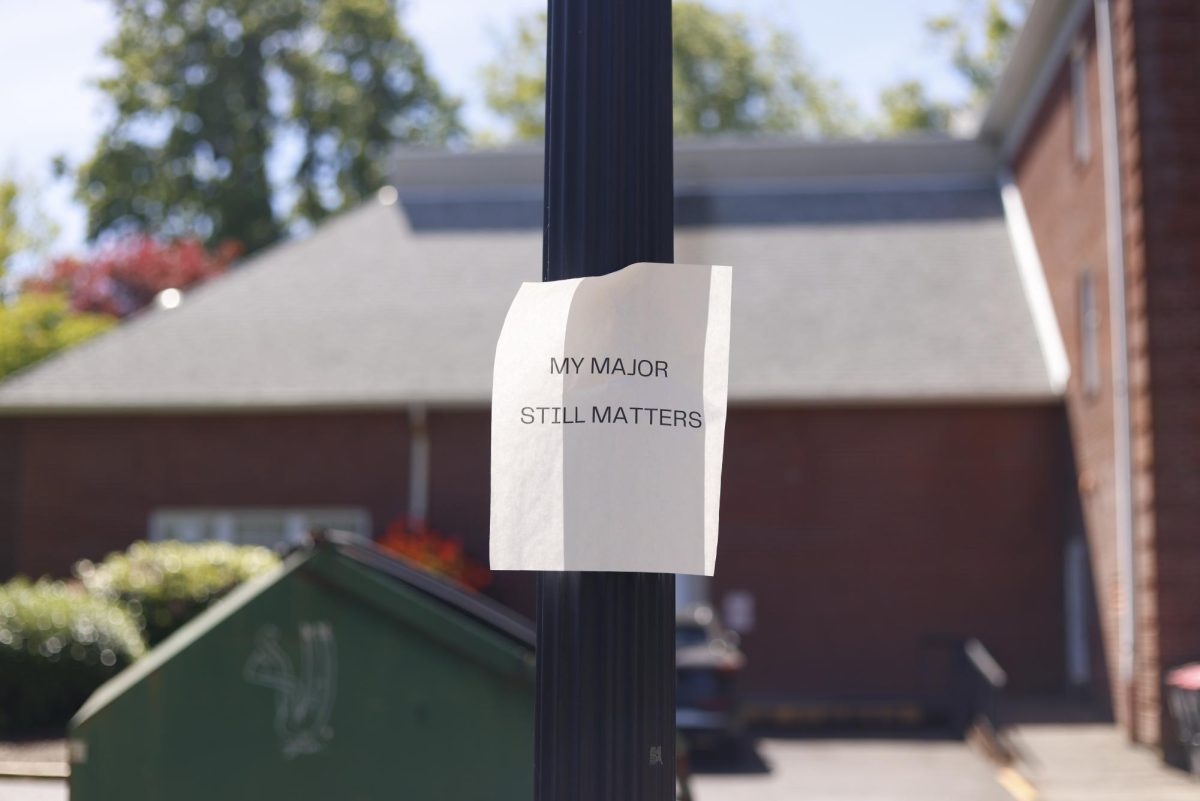“Experience brings learning,” Michael Vande Berg said, encouraging students during a study abroad presentation Oct. 25 in Ice Auditorium.
As a speaker and trainer, Vande Berg encouraged students to acknowledge frames and spoke about how to handle ambiguity while abroad in the future in order to get the most out of their study abroad experiences.
“Simply going abroad is not a guarantee that students will gain those skills,” said Violeta Ramsay, associate professor of Modern Language-Spanish Language and Literature, via email. “They need to be fully prepared before departure. They should know how they can effectively gain those desired skills.”
Through a series of activities, Vande Berg provided students with the opportunity to prepare themselves with the necessary skills for studying abroad, including a better understanding of frames.
“[Frames are] ways that we perceive and organize the world,” Vande Berg said. “Those frames contain in them the emotional feeling, the certainty that the way that we perceive is the right way. And that conviction is very powerful.”
“Frames are not only a mental thing, but hugely emotional and behavioral,” Vande Berg said. “Coming into awareness and developing the capacity to frame shift offers us choices, it liberates us. The truth is, when we aren’t aware of this, we are locked into a way of thinking, a way of feeling, a way of acting.”
Vande Berg believes that in order to gain the most extraordinary studying abroad experience, students must know how to recognize and react by frame-shifting. He conveyed this message through three interactive activities.
“A common theme among the activities was introducing you to the experience of what we as human beings do all the time, which is frame,” Vande Berg said. “[By] introducing this as a possibility, we can frame- shift if we want to and know that this action is in our control.
“You’ve heard that people who are intercultural are really good at tolerating ambiguity,” Vande Berg said. “What [these activities] did was present us with ambiguity. The way we act in situations of ambiguity tells us a lot about who we are.”
Having an understanding of frames will lead to a more rewarding study abroad experience, Vande Berg emphasized.
During his presentation, he provided a lot of information to audience members but there were a few main points he hoped students took away from the 90-minute presentation.
“At least an increased awareness that we as human beings frame, that’s the first thing,” he said. “The second thing, the idea that frame- shifting is possible and in [one’s] control.”
Sophomore Cody Purchase, who plans to study abroad in Japan next fall, felt that he had especially benefited from the presentation. He has previously been to Japan, Jordan and Costa Rica. He was able to reflect on his past experiences while considering the new information Vande Berg presented.
“The presentation was awesome,” Purchase said. “It gave me ways to recognize my own behavior and better it, as well as things to consider. It organized all the things I had felt before into a concept I can remember and hope to utilize.
“In Japan, I had noticed a sort of polite restraint or lack of opening up among many of the people I met,” Purchase said. “It was not impolite but it did make me a little hesitant, making me wonder if I had perhaps said something offensive or there had been a miscommunication of sorts. I eventually found out it is just a cultural norm. As more time went by, I was able to talk about more in-depth things and we became friendlier together. At first they were simply honoring me as their guest, but later on, as I wanted it to happen, I became more of a part of the family.”
Purchase understands the importance of frame-shifting from his own firsthand experiences and encourages his fellow students to take note on Vande Berg’s expertise.
“One important point of this presentation was the power of the human brain,” he said. “Not only can it pick up on such minute differences and apply them to its own “frame” of life, but it can also (with time, patience and practice) become a more globally-minded brain, one able to shift more lucidly from frame to frame in the context of different cultures. Once you are able to truly accept a culture in this way, you will learn more than you would ever be able to by seeing the temples, ancient ruins [and so on].”
At the end of the night, students like Purchase were glad they attended the presentation.
Vande Berg trained students in such a way that would help them have the most fun and best learning experience possible while abroad.
“[With the ability to frame-shift] you will come as close as you can get to actually being an embodiment of the culture,” Purchase said. “Maybe even be able to feel the culture from within, rather than just seeing it from the outside.”
Sarah Mason
Staff writer






